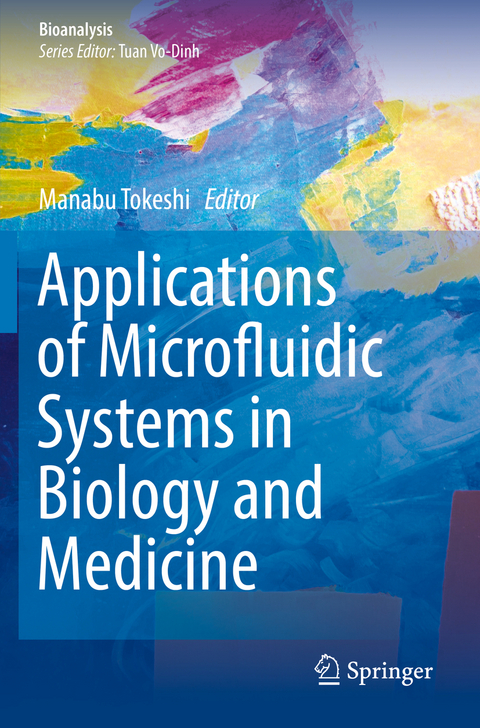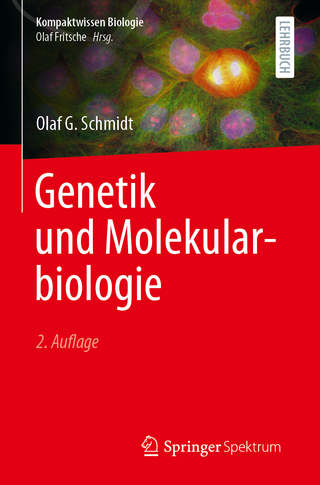
Applications of Microfluidic Systems in Biology and Medicine
Springer Verlag, Singapore
978-981-13-6231-6 (ISBN)
This book focuses on state-of-the-art microfluidic research in medical and biological applications. The top-level researchers in this research field explain carefully and clearly what can be done by using microfluidic devices. Beginners in the field —undergraduates, engineers, biologists, medical researchers—will easily learn to understand microfluidic-based medical and biological applications. Because a wide range of topics is summarized here, it also helps experts to learn more about fields outside their own specialties. The book covers many interesting subjects, including cell separation, protein crystallization, single-cell analysis, cell diagnosis, point-of-care testing, immunoassay, embyos/worms on a chip and organ-on-a-chip. Readers will be convinced that microfluidic devices have great potential for medical and biological applications.
Manabu Tokeshi is a professor in the Division of Applied Chemistry at Hokkaido University. He is also a visiting professor at the ImPACT Research Center for Advanced Nanobiodevices, the Innovative Research Center for Preventive Medical Engineering, and the Institute of Innovation for Future Society at Nagoya University. He received his Ph.D. degree from Kyushu University in 1997. Following his work as a research fellow of the Japan Society of Promotion of Science at The University of Tokyo, he worked at the Kanagawa Academy of Science and Technology as a research staff member (1998–1999), a group subleader (1999–2003), and a group leader (2003–2004). He also served at the Institute of Microchemistry Technology Co. Ltd. as president (2004–2005) and at Nagoya University as an associate professor (2005–2011). In 2011, Dr. Tokeshi was at the Karolinska Institutet in Sweden as a visiting researcher, after which joined Hokkaido University as a professor. His honors include the Outstanding Researcher Award on Chemistry and Micro-Nano Systems from the Society for Chemistry and Micro-Nano Systems (2007), the Pioneers in Miniaturisation Prize from the Lab on a Chip (The Royal Society of Chemistry)/Corning Inc. (2007), and the Masao Horiba Award from HORIBA, Ltd. (2011). His research interests are in the development of micro- and nano-systems for chemical, biochemical, and clinical applications. Contributors: Thomas Laurell, Lund University Manabu Tokeshi, Hokkaido University Jaebum Choo, Chung-Ang University Reza M. Mohamadi, University of Toronto Hou Han Wei, Nanyang Technological University Han-Sheng Chung, National Cheng Kung University Severine Le Gac, University of Twente Yu-suke Torisawa, Kyoto University Shoji Takeuchi, The University of Tokyo Yoshinobu Baba, Nagoya University Masateru Taniguchi, Osaka University Elain Fu, Oregon State University Citterio Daniel, Keio University
1. Acoustofluidic blood component sample preparation and processing in medical applications.- 2. Microfluidic technologies and platforms for protein crystallography.- 3. Application of Sers-based Microfluidics for in Vitro Diagnostics.- 4. Miniaturized Electrochemical Sensors to Facilitate Liquid Biopsy for Detection of Circulating Tumor Markers.- 5. Spiral Inertial Microfluidics for Cell Separation and Biomedical Applications.- 6. Worms on a Chip.- 7. Microfluidic devices for gamete processing and analysis, fertilization and embryo culture and characterization.- 8. Microfluidic organs-on-chips to reconstitute cellular microenvironments.- 9. In vitro tissue construction for organ-on-a-chip applications.- 10. Nanobiodevices for Cancer Diagnostics and Stem Cell Therapeutics.- 11. Nanopore Device for Single-Molecule Sensing Method and Its Application.- 12. Paper Microfluidics for POC Testing in Low-resource Settings.- 13. Paper-Based Microfluidics for Point-of-Care Medical Diagnostics.
| Erscheinungsdatum | 07.07.2020 |
|---|---|
| Reihe/Serie | Bioanalysis ; 7 |
| Zusatzinfo | 144 Illustrations, color; 25 Illustrations, black and white; VIII, 382 p. 169 illus., 144 illus. in color. |
| Verlagsort | Singapore |
| Sprache | englisch |
| Maße | 155 x 235 mm |
| Themenwelt | Mathematik / Informatik ► Informatik ► Theorie / Studium |
| Medizin / Pharmazie ► Physiotherapie / Ergotherapie ► Orthopädie | |
| Studium ► 2. Studienabschnitt (Klinik) ► Humangenetik | |
| Naturwissenschaften ► Biologie | |
| Naturwissenschaften ► Chemie ► Analytische Chemie | |
| Technik ► Medizintechnik | |
| Schlagworte | Lab on a chip • Medical Diagnosis • microfluidic device • Organ on a chip • Single Cell |
| ISBN-10 | 981-13-6231-9 / 9811362319 |
| ISBN-13 | 978-981-13-6231-6 / 9789811362316 |
| Zustand | Neuware |
| Haben Sie eine Frage zum Produkt? |
aus dem Bereich


